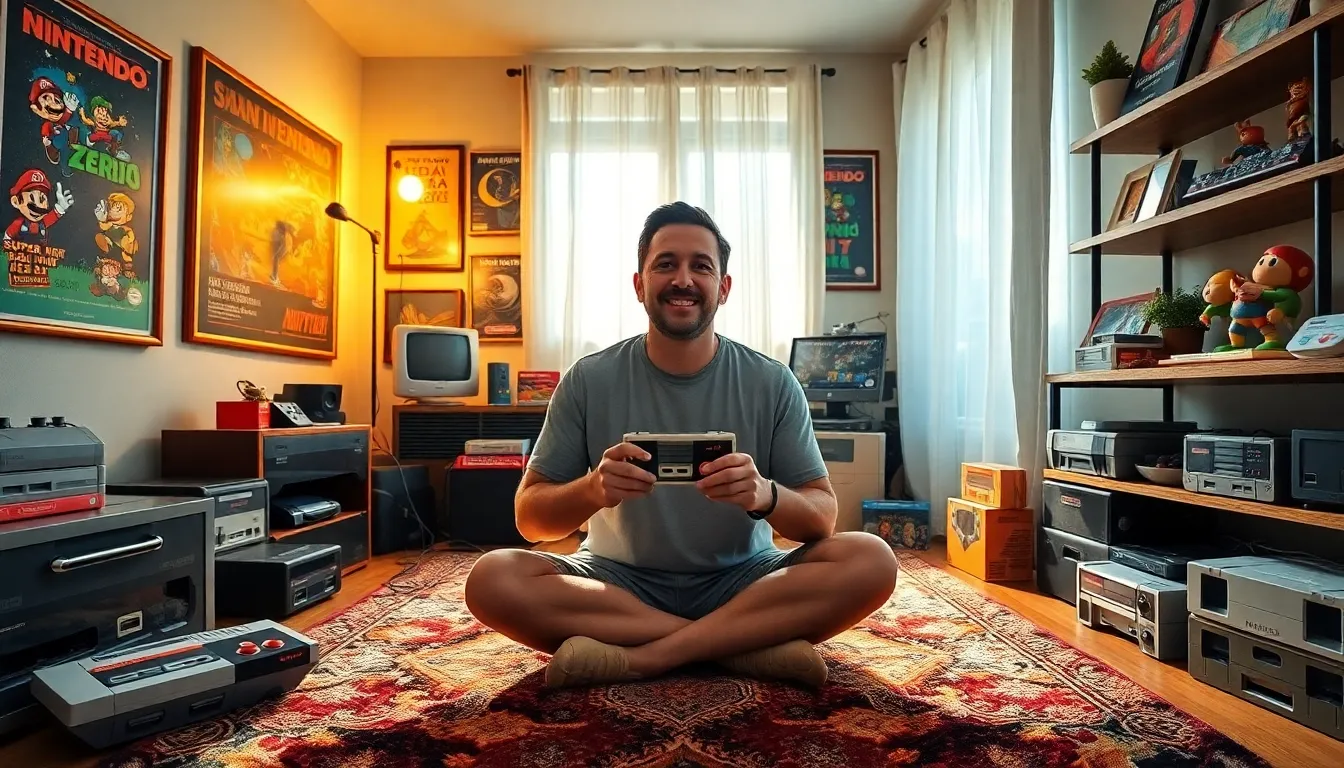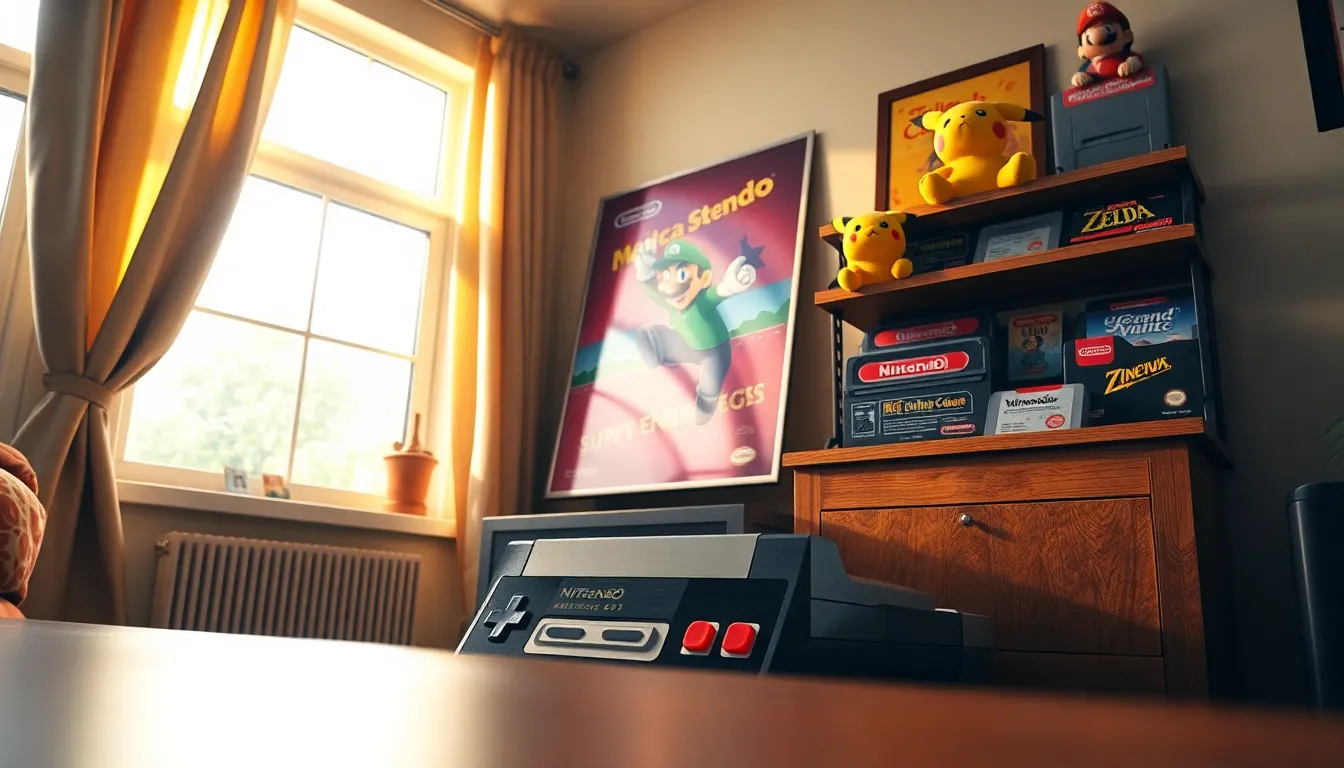Nintendo has created an indelible mark on the gaming landscape, shaping the experiences of countless gamers across generations. From the iconic Mario to the introspective journeys of The Legend of Zelda, Nintendo’s games have fostered immense cultural connections and influenced not just gaming, but various aspects of popular culture. This article delves into the legacy of Nintendo, celebrating its evolution, its role in competitive gaming, and the preservation of its vast archives, providing a comprehensive view of how this gaming giant continues to resonate with players today.
Table of Contents
ToggleThe Legacy Of Nintendo: A Gamer’s Perspective

Major Milestones In Nintendo’s History
Nintendo’s journey began in 1889 as a playing card company. It wasn’t until the late 1970s that the company pivoted towards video games, releasing the arcade game “Donkey Kong,” which introduced the world to Mario. This marked a significant shift, leading to the launch of the Nintendo Entertainment System (NES) in the 1980s, which played a crucial role in reviving the video game industry after the crash of 1983.
With notable franchises such as Super Mario, The Legend of Zelda, and Pokémon emerging during the late 20th century, Nintendo established itself as a household name. The launch of the Wii in 2006 introduced motion-sensing capabilities, appealing to a broader audience and revolutionizing gaming experiences.
Cultural Impact Of Nintendo Games
Nintendo’s titles have transcended gameplay to become cultural phenomena. Franchises like Mario and Pokémon have not only created nostalgia but also fostered community engagement through merchandise, films, and TV series. The characters have become symbols of childhood for many, contributing to a shared language among generations of gamers. Besides, Nintendo has inspired numerous other developers, impacting game design and storytelling across the industry.
The Evolution Of Nintendo Consoles
Notable Games That Defined Generations
The evolution of Nintendo consoles is synonymous with the progression of gaming itself. Each console generation has introduced groundbreaking titles that defined the industry. The NES laid the groundwork with transformative games like “Super Mario Bros.” and “The Legend of Zelda.” In the 16-bit era, the Super Nintendo Entertainment System (SNES) brought titles like “Super Metroid” and “Street Fighter II,” setting standards in graphics and gameplay depth.
With the Nintendo 64 came 3D gaming, highlighted by classics like “Super Mario 64” and “The Legend of Zelda: Ocarina of Time.” The GameCube followed with innovative titles like “Super Smash Bros. Melee,” while the Wii introduced accessible gameplay with titles such as “Wii Sports,” compelling even casual gamers. Each generation not only showcased technological advancements but also highlighted Nintendo’s innovative spirit and dedication to creativity.
The Role Of Nintendo In Esports And Competitive Gaming
Community Engagement: Fans And Fandoms
Nintendo has cultivated a vibrant community of fans that ranges from casual play to competitive esports. Titles like “Super Smash Bros.” have fostered competitive scenes that captivate audiences worldwide. Fan-driven tournaments and conventions celebrate these games, creating spaces for gamers to engage, interact, and share their passion.
Nintendo’s hesitance to fully embrace esports has led to a complex relationship, but grassroots efforts have kept communities thriving. Events like the Evolution Championship Series (Evo) have highlighted Nintendo games, giving players a platform to showcase their skills. The engagement seen in such competitions underscores the dedication of both fans and competitors, illustrating the impact Nintendo titles have on the gaming landscape.
Fan Creations And Impact On Nintendo’s Image
Fans often extend their love for Nintendo through various creative outlets, including fan art, mods, and game-inspired content. Platforms like YouTube and Twitch showcase gameplay, walkthroughs, and fan theories, amplifying the company’s reach and influence. These fan creations not only celebrate Nintendo’s rich heritage but also reinforce the company’s image as approachable and community-centric.
Preservation Of Nintendo’s Legacy: The Archives
Digital Preservation Efforts
As gaming transitions into the digital age, preserving the rich history of Nintendo games becomes increasingly essential. Various initiatives have emerged focused on the digital preservation of classic titles, ensuring that past games remain accessible for future generations. Preservation efforts also include the development of emulation and documentation, allowing gamers to access and understand the legacy of Nintendo.
Nintendo itself has shown commitment to this preservation through initiatives like the Virtual Console, which resurrected classic titles on newer consoles, catering to nostalgia while introducing these games to new audiences. The conversation around preservation emphasizes the importance of maintaining gaming history, highlighting how these games shape present and future gaming culture.
Future Of Nintendo Archives And Gaming History
The future of Nintendo archives seems promising, with potential expansion into digital realms continuing to gain traction. As more of gaming’s history is documented and preserved, fans expect greater access to the retro games that shaped their childhoods.
Innovative concepts like augmented reality provide exciting opportunities for recreating classic gaming experiences, merging the nostalgia of yesteryear with modern technology. Besides, the community remains dedicated to advocating for the preservation of gaming history, ensuring Nintendo’s legacy will not only be remembered but celebrated for years to come.
Conclusion
Nintendo’s enduring legacy is a testament to its ability to adapt and innovate while staying true to the core values that resonate with gamers. From its rich history of groundbreaking titles to its active role in competitive gaming and commitment to preserving its eclectic archives, Nintendo has cemented its position as a pillar of the gaming community. As it continues to evolve, the foundations laid down by decades of creativity will undoubtedly shape the future of gaming.





